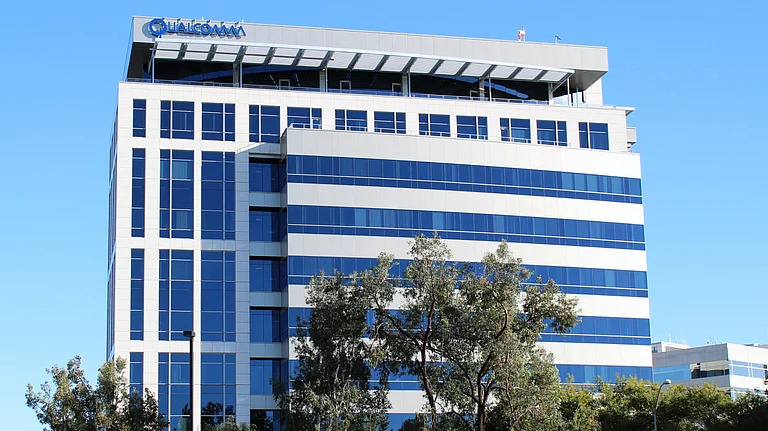The entrepreneurial roller coaster can often get turbulent and the lesson I have learned over the years is that the delicate balance between unit economics and growth can calm the choppiness. In the world of start-ups, this equilibrium is often like a tightrope walk at a village fair—thrilling, nerve-wracking, and sometimes just the right amount of crazy.
OYO, with its growth focus, doubled its topline every year between FY18 and FY20. Then came Covid-19, and overnight, we witnessed a 60% drop in our revenue.
However, here is the crux of it all—you can see such situations either as insurmountable challenges or golden opportunities. Covid-19, for instance, was a difficult time for the hospitality industry. At the same time, it became the forcing function for us to reset our equilibrium, recalibrate our business, concentrate on the right markets, streamline our business model and fix our unit economics. The shift helped us achieve positive operating profits and the path to net profits.
In the midst of a growth frenzy, capital flows freely. Valuations become a focal point of discussion, aided by surging asset prices. During this phase, the yardstick of success is often one’s topline figures. The game is around growth, with profitability taking a back seat.
In the current climate, founders have a unique window to reassess their unit economics and profitability. The trade-off between growth and unit economics varies, and there is no one-size-fits-all approach.
Entrepreneurship requires founders to shift gears, focusing on one aspect at a time to achieve excellence. Companies yet to attain scale should prioritise growth, provided they have the resources to support it. Conversely, if they have reached a certain scale, it is time to look at unit economics.
Understanding the key aspects of unit economics and demonstrating them is pivotal. For smaller companies, it starts with unit economics and revenue balance.
However, in an industry aiming for leadership, reasonable scale comes first. Once you have showcased strong unit economics, the path to sustainable growth becomes smoother. The trade-off with profitability gradually fades away, and you can grow comfortably.
Established companies that have withstood the test of time manage it consistently—they grow while showcasing profits. Not all may experience the rapid growth of start-ups, but many achieve the feat.
Adaptability: A Valuable Asset
Start-ups exist primarily to make a significant impact, with valuations and financials being natural outcomes of this quest. Healthy margins and robust unit economics are prerequisites to continue making an impact, showcasing commercial viability.
While launching OYO, the impact element involved empowering small-business owners by helping them boost occupancy and revenue, and standardise stays for customers. While we grew rapidly, we never lost sight of unit economics.
The debate of whether founders should focus on unit economics or revenues, especially in today’s funding winter, often boils down to the organisation’s culture and its ability to pivot. The burning question on an entrepreneur’s mind is whether their entire company, built with the pursuit of growth, can adapt to cultural changes. It might be a challenging shift initially, but in the long run, the team will appreciate the vision, leading to better outcomes.
Start-ups have become synonymous with a culture of creativity and risk-taking in their relentless pursuit of growth, but it is worth remembering that the same principles can be utilised to improve unit economics and achieve profitability. A “growth at all costs” approach is usually at odds with the objective of long-term sustainability, which forms the cornerstone of any great company, and is essential to drive widespread impact.
Moreover, as a start-up generates its cash flows, its ability to innovate increases. This adaptability becomes a valuable asset. Unit economics, however, do not improve significantly with minor adjustments. If your margin to the overall booking or sale value is meagre, it is time to swing the pendulum to the other extreme.
Early-stage start-up founders, especially, need to realise that although growth is vital, they should focus on unit economics for a few months or quarters. It might be the determining factor for their survival and future prospects. This is the very mantra that sustained us during the challenging days of Covid-19. The resilient souls who persevered now reap more profits than ever before.
The ongoing funding autumn is analogous to what the hospitality industry experienced as travel swiftly rebounded. Resource constraints can be a beautiful thing that founders can leverage to their advantage.
Network Effects: Capital Allocation and Impact
Andrew Chen’s words in The Cold Start Problem emphasise that founders will want to figure out profitability eventually. For networked products, it often makes sense to spend significantly to fuel growth in the early stages.
The goal is to push the market toward the tipping point, fostering positive network effects, and then scaling back subsidies. The result should be a rapidly growing, highly monetised product.
Take OYO’s journey, for example. In its early days in 2013, we operated solely in the NCR region due to limited resources. As our resources grew, we expanded from a city-based entity to a national and now a global player that is present in 35 countries. Capital allocation played a crucial role.
In 2016–17, OYO was profitable in the NCR, where it was based, but not in Bangalore and Hyderabad. This discrepancy arose because we were focused on expansion. The pursuit of scale does not always come with growth. It requires a deliberate strategy to achieve a similar impact.
Seeking Profitable Islands: A Delicate Balance
Jonathan L.S. Byrnes’ book, Islands of Profit in a Sea of Red Ink, reveals that a significant portion of business may be unprofitable, while another segment provides substantial profits, subsidising the losses. Founders should take a pause and identify the segments of the business that are performing well. Unit economics analysis should focus on finding these “islands of profit”.
Peter Thiel’s wisdom reminds us that it is better to be a big fish in a small pond rather than the other way around. The ability to pivot margins is driven by your ability and impact.
The good news is that the start-up ecosystem is evolving. Founders can now decide how to balance various aspects, accounting for some trade-offs, allowing them to grow sustainably in resource-constrained times and gain a competitive advantage in the future.
And remember, entrepreneurship is a thrilling journey, and every step on the tightrope adds to the excitement. Embrace the balance, and you might just find yourself achieving remarkable feats.
The author is the founder and group CEO of hospitality chain OYO











